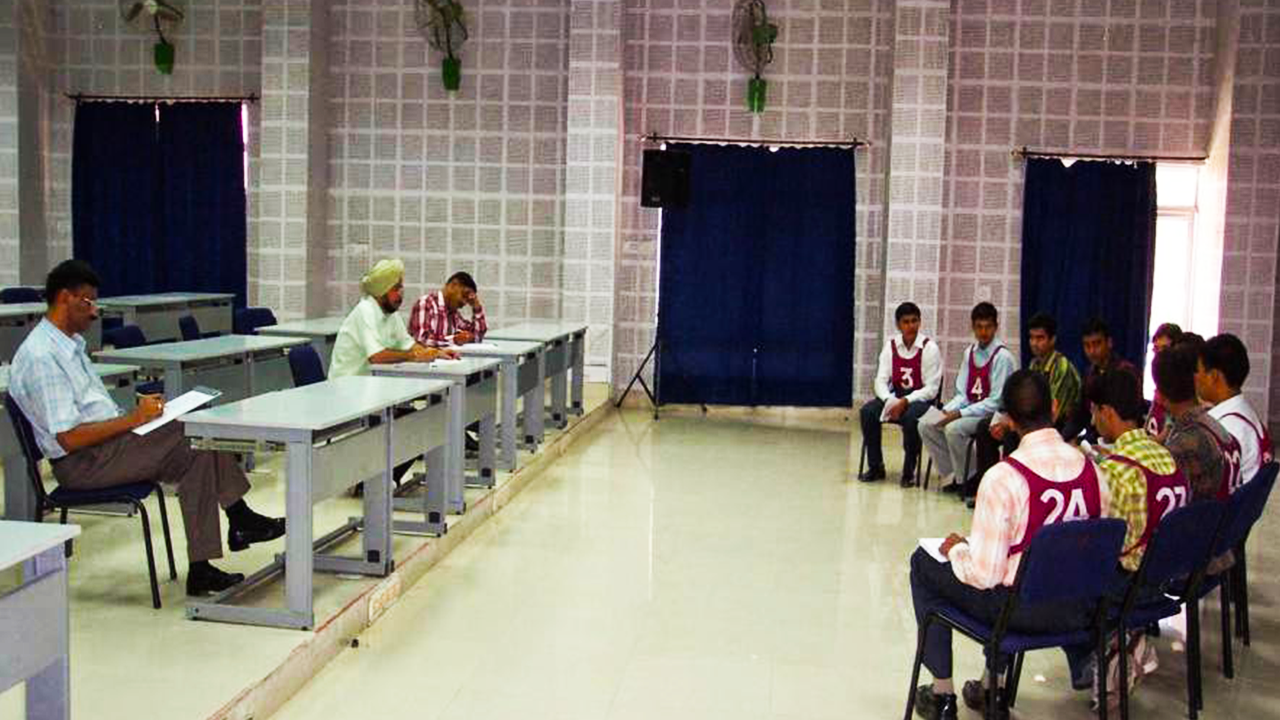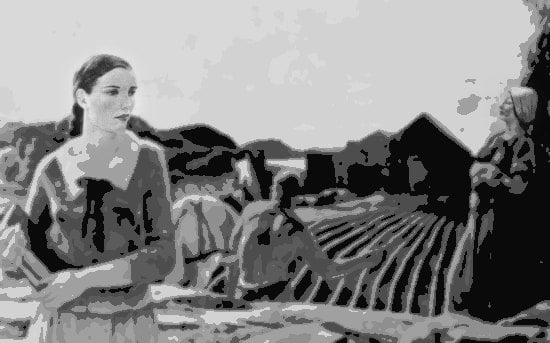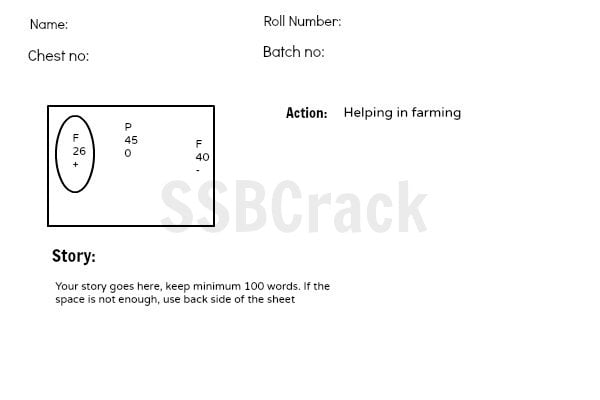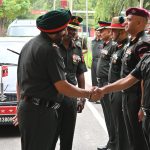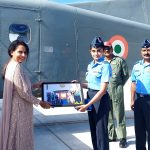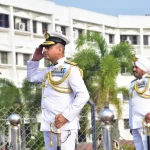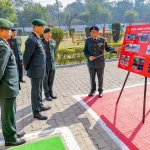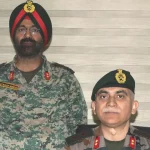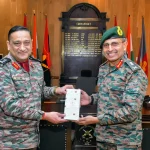Navigating the rigorous selection process of the Services Selection Board (SSB) can be a daunting challenge for aspiring defense officers. Among the various stages of evaluation, the Picture Perception and Discussion Test (PPDT) holds a crucial position, serving as a gateway to the subsequent rounds.
We are excited to delve into the intricacies of PPDT and equip you with the knowledge and strategies to excel in this pivotal assessment.
Understanding PPDT: The Basics
PPDT, or the Picture Perception and Discussion Test, is one of the two tests conducted during the first stage of the SSB interview process. Alongside the Officer Intelligence Rating (OIR) test, PPDT plays a significant role in the initial screening of candidates. While the OIR test focuses on verbal and non-verbal reasoning, PPDT is designed to evaluate your perceptual abilities, storytelling skills, and group dynamics.
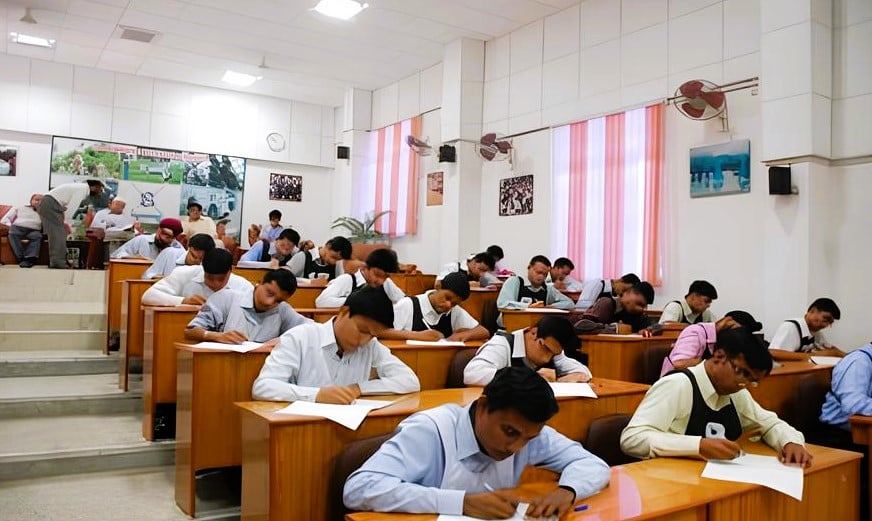
Now we will discuss PPDT, what is PPDT and how to write and speak during PPDT. This would help freshers who certainly miss or get confused during PPDT story writing, narration and group discussion.
📚Must Order Now: 👉 SSB Interview Books Power Pack: 4 Essential Books for Defence Aspirants
The PPDT Process: Step-by-Step
The PPDT process consists of three key components: picture perception, story writing, and group discussion. Let’s explore each of these elements in detail:
Picture Perception
During the PPDT, you will be presented with a picture for a brief period of 30 seconds. This visual stimulus serves as the foundation for the subsequent story writing and discussion.
Story Writing
After the initial observation, you will be given 1 minute to note down the key details you have perceived, such as the gender, age, and mood of the characters depicted in the picture. Following this, you will have 4 minutes to craft a compelling story based on the visual cue.
Group Discussion
Once the individual story writing is complete, you will be divided into a group of 12-14 candidates. Each member will be given the opportunity to narrate their story to the group. The group then engages in a discussion, with the aim of arriving at a common narrative that encompasses the diverse perspectives shared.
Mastering the PPDT: Strategies and Techniques
To excel in the PPDT, it is essential to develop a comprehensive understanding of the test and hone your skills in the following areas:
Observation and Perception
Effective PPDT performance begins with your ability to accurately observe and perceive the details within the given picture. Train your mind to quickly identify the key elements, such as the characters, their expressions, and the overall context of the scene.
Storytelling Prowess
Crafting a compelling and coherent story based on the picture is a critical aspect of PPDT. Develop your narrative skills by practicing creative writing, paying attention to plot development, character portrayal, and emotional resonance.
Group Dynamics and Communication
The group discussion component of PPDT requires you to demonstrate strong interpersonal skills, active listening, and the ability to contribute constructively to the collective narrative. Practice effective communication techniques and learn to navigate group dynamics with poise and maturity.
What is PPDT?
PPDT stands for picture perception and discussion test, as the name suggests, you need to write a story on the picture shown, narrate it and then discuss among group members to make a common story.
How to write a Story in PPDT?
This exercise is a part of the psychological assessment in the SSB (Service Selection Board) process, designed to evaluate your perception, observation skills, and ability to construct a coherent narrative based on visual stimuli. Here’s a step-by-step guide to approach this task effectively:
Step 1: Observation (30 seconds)
- Focus on the entire image quickly: Don’t get stuck on any one part. Scan the image as a whole to get a general sense of what’s happening.
- Identify characters: Look for human figures in the image. Pay attention to their appearance, gender (if identifiable), age, and emotional expressions (mood).
- Note the setting: Observe the background and environment to understand the context of the scene.
Step 2: Noting Down Details (1 minute)
- Character Details:
- Gender: Identify if the characters are Male (M), Female (F), or Person (P) if gender is unclear.
- Mood: Assess the mood of each character. Mark with
+for positive,-for negative, and0for neutral. - Age: Estimate the age of each character based on their appearance.
- Circle the first character: Circle the details of the character you noticed first.
- Action Description:
- On the right side of the sheet, write the action happening in the scene in 3-4 words. For example, “Helping an old man,” “Celebrating a festival,” “Escaping from danger,” etc.
Step 3: Writing the Story (4 minutes)
- Introductory Sentence: Start with a brief introduction that sets the scene. Mention the primary character and the situation they are in.
- Main Action: Describe the central event or action taking place in the story. Ensure that the action you noted down is the focus.
- Resolution: Conclude with how the situation was resolved or what the outcome was.
Example:
Observation Details:
- Character 1: M, 25 years, + (Circled)
- Character 2: F, 23 years, 0
- Character 3: M, 50 years, –
Action Description: Helping an injured person
Story: Rahul, a 25-year-old man, was walking through the park on a sunny afternoon when he noticed an elderly man, around 50 years old, who had tripped and fallen. The elderly man seemed distressed, and no one around had noticed him. Rahul quickly rushed to help him. A young woman, about 23 years old, who was passing by, joined Rahul to assist. Together, they helped the man to a nearby bench, where they ensured he was safe and called for medical help. Their prompt action brought relief to the elderly man, who was grateful for their assistance.
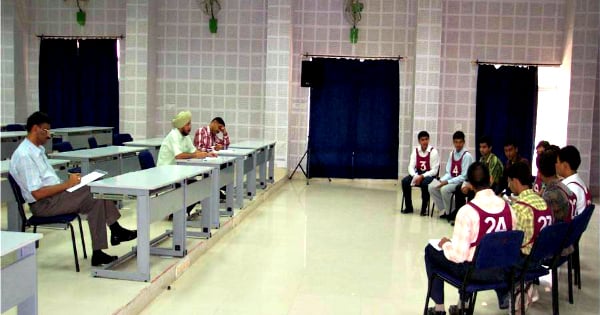
By following these steps, you can effectively utilize the limited time provided to craft a meaningful and coherent story that reflects your observation and analytical skills.
PPDT Story Writing Sample
This exercise is a crucial part of the SSB selection process, testing your ability to observe, analyze, and collaborate effectively under time constraints. Here’s how to approach each segment of this task:
Observation and Note-Taking
Details in the Box:
- Character 1: Female (F), 26 years, Positive Mood (
+) (Circled) - Character 2: Female (F), 40 years, Negative Mood (
-) - Character 3: Person (P), 45 years, Neutral Mood (
0)
Action Part: The scene is on agricultural land. Keywords: farming, poor, agriculture, help, fertilizers, drought, earning, livelihood.
PPDT Sample Sheet
Crafting the Story
Story Example:
Radha, a 26-year-old woman, stood at the edge of her family’s small agricultural plot, the sun beating down relentlessly. Despite the harsh conditions, she maintained a positive outlook, determined to make the best of the situation. Her mother, who was 40 years old, was standing a little distance away, her face etched with worry as she observed the parched soil that hadn’t seen rain in weeks.
In the middle of the field was an elderly worker, around 45 years old, diligently preparing the ground for the seeds they had saved from the last harvest. Though his expression was neutral, it was clear that he, too, understood the gravity of the drought.
Radha knew that their livelihood depended on this harvest. She had recently learned about a government scheme that provided subsidies for fertilizers and had convinced her family to apply. As they worked together, Radha’s optimism and willingness to embrace new methods gave the family hope. Despite the challenges, they were committed to ensuring their land would yield enough to support them through the tough season ahead.
Discussion Test: Individual Narration and Group Discussion
Individual Narration:
- Stay Calm and Confident: Remember the key points of your story. Start by introducing the main character and the setting.
- Be Concise: You have limited time, so focus on the core of your story. Highlight the action and its significance.
- Maintain Eye Contact: Speak clearly and confidently without looking at the assessors. This shows you are self-assured and focused.
Group Discussion:
- Start with a Summary: If you feel confident, start the discussion by summarizing your story and its key points.
- Stay Calm in Chaos: If the discussion becomes heated, wait for a gap to present your ideas. Do not raise your voice unnecessarily.
- Collaborate, Don’t Compete: The goal is to create a common story. Be willing to merge ideas or suggest compromises that incorporate elements from different stories.
Final Thoughts:
Your performance in this exercise is a reflection of how you handle pressure, interact with others, and think on your feet. The key is to stay focused, be observant, and communicate clearly. This exercise is not just about the story you tell but also about how you collaborate and engage with your peers.
PPDT and TAT: Understanding the Differences
It is important to note the distinction between PPDT and the Thematic Apperception Test (TAT), another assessment employed in the SSB interview process. While both involve story writing based on visual cues, there are some key differences:
- PPDT is conducted during the first stage of the SSB interview, while TAT is part of the second stage.
- PPDT presents a single picture, whereas TAT comprises a set of 12 pictures.
- In PPDT, you are required to note down specific details about the characters, such as their gender, age, and mood, before writing the story. TAT, on the other hand, only involves the story writing component.
- PPDT includes an individual narration and group discussion, while TAT is solely focused on the story writing task.
Preparing for PPDT: Resources and Guidance
To enhance your PPDT performance, I highly recommend exploring the following resources:
- PPDT and TAT eBooks: Delve into comprehensive guides that provide sample stories, tips, and strategies for navigating these assessments.
- SSB Interview Preparation Courses: Enroll in online coaching programs that offer in-depth training and personalized feedback on PPDT and other SSB interview stages.
- Practice, Practice, Practice: Engage in regular PPDT and TAT exercises, using online platforms or sample pictures, to hone your skills and build confidence.
Join SSB Interview Online Coaching by SSBCrackExams
Remember, the SSB interview process is designed to assess your overall suitability for a career in the defense forces. By mastering the PPDT and leveraging the right resources, you can take a significant step towards realizing your aspirations.
The PPDT is a pivotal assessment in the SSB interview process, serving as a gateway to the subsequent rounds. By understanding the test’s components, mastering the required skills, and leveraging the right resources, you can position yourself for success. Remember, the journey to becoming a defense officer is not just about passing the tests; it’s about demonstrating your potential, resilience, and commitment to serving the nation. Embrace the challenge, stay focused, and let your passion for the defense forces guide you towards your aspirations.
FAQs
What is the full form of PPDT?
PPDT stands for Picture Perception and Discussion Test, a crucial component of the SSB interview process.
How is PPDT different from TAT?
While both PPDT and TAT involve story writing based on visual cues, they differ in terms of the number of pictures, the level of detail required, and the inclusion of group discussion in PPDT.
What is the purpose of PPDT in the SSB interview?
PPDT is designed to assess a candidate’s perceptual abilities, storytelling skills, and group dynamics, which are essential qualities for a successful career in the defense forces.
How can I prepare effectively for the PPDT?
To prepare for PPDT, focus on honing your observation and perception skills, storytelling prowess, and group communication techniques. Utilize resources like eBooks, online coaching, and regular practice to enhance your performance.

